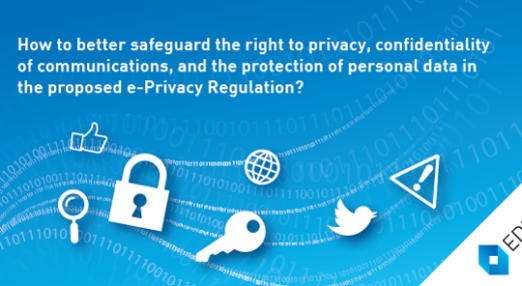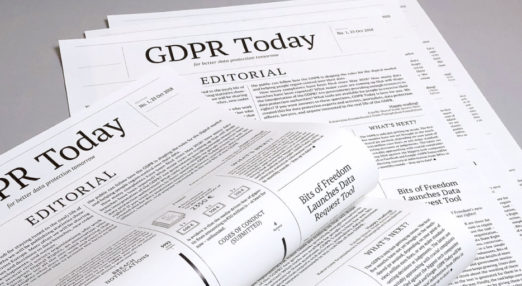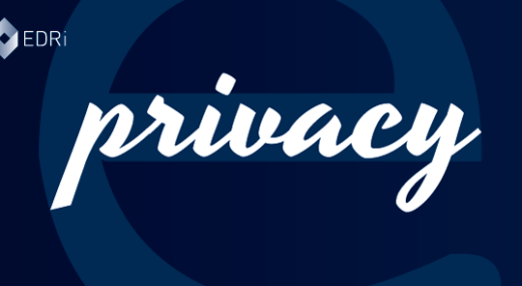Privacy and confidentiality
Privacy is a crucial element of our personal security, enabling free speech and democratic participation. The absolute and fundamental human right to privacy guarantees people respect for their private life and freedom from snooping and unlawful interference. It gives everyone the freedom to be themselves, to express and develop their opinions and ideas with dignity, and to practice their religion, as well as giving journalists and civil society the ability to report on violations of rights by states or businesses. Without sufficient privacy, people’s private interactions are exposed, which can be used to target or discriminate against them.
Filter resources
-

Bits of Freedom announces winner of privacy award
The Dutch Big Brother Awards will take place on 22 January 2019 in Amsterdam, the Netherlands. This year’s distinguished winner of the Felipe Rodriguez Award is Kirsten Fiedler, Managing Director of European Digital Rights. With this award, a Dutch digital rights organisation, EDRi member Bits of Freedom recognises people and organisations who have made a remarkable […]
Read more
-

Denmark prepares for passenger data exchange with the EU
In 2016, the European Union adopted the Passenger Name Record (PNR) Directive which obliges Member States to collect PNR data on all flights to third countries and exchange this information with other Member States through the Passenger Information Units (PIUs).
Read more
-

EU Council’s general approach on “e-evidence”: From bad to worse
On 7 December 2018, the Justice and Home Affairs Council (JHA) adopted its general approach – a political agreement before entering into negotiations with the European Parliament – on the proposal for a Regulation on European Production and Preservation Orders in criminal matters. The initial proposals of the European Commission already raised concerns in terms […]
Read more
-

Civil society calls Council to adopt ePrivacy now
EDRi has joined a letter of 30 representatives from civil society and online industry, to the Ministers in the Telecoms Council, to express the wide support for the ePrivacy Regulation. The letter describes the clear and urgent need to strengthen privacy and security of electronic communications in the online environment, especially in the wake of […]
Read more
-

NGOs urge Austrian Council Presidency to finalise e-Privacy reform
EDRi member epicenter.works, together with 20 NGOs, is urging the Austrian Presidency of the Council of the European Union to take action towards ensuring the finalisation of the e-Privacy reform. The group, counting the biggest civil society organisations in Austria such as Amnesty International and two labour unions, demands in an open letter sent on 6 November 2018 an end to the apparently never-ending deliberations between the EU member states.
Read more
-

The GDPR Today – Stats, news and tools to make data protection a reality
25 October 2018 marks the launch of GDPR Today – your online hub for staying up-to-date with the (real) life of the new EU data protection law, the General Data Protection Regulation (GDPR). The project will monitor the implementation of the law across Europe by publishing statistics and sharing relevant news around key subjects.
Read more
-

New standards for networking challenge regulators & digital rights
On 17 October, the European body of telecommunications regulators (BEREC) organised a stakeholder meeting in Brussels, inviting industry, consumers, regulators and citizens’ rights groups to reflect on the BEREC Work Programme 2019.
Read more
-

CJEU introduces new criteria for law enforcement to access data
On 2 October 2018, the Court of Justice of the European Union (CJEU) delivered a new ruling in the “Ministerio Fiscal” case on access to data retained by electronic communications service providers under the scope the ePrivacy Directive.
Read more
-

ePrivacy: Public benefit or private surveillance?
92 weeks after the proposal was published, the EU is still waiting for an ePrivacy Regulation. The Regulation is supposed to replace the current ePrivacy Directive, aligning it with the General Data Protection Regulation (GDPR).
Read more
-

Council continues limbo dance with the ePrivacy standards
It's been six-hundred-fifty-two days since the European Commission launched its proposal for an ePrivacy Regulation. The European Parliament took a strong stance towards the proposal when it adopted its position a year ago, but the Council of the European Union is still only taking baby steps towards finding its position.
Read more
-

Civil society calls for evidence-based solutions to disinformation
Human and digital rights organisations Access Now, Civil Liberties Union for Europe and European Digital Rights (EDRi) published a joint report on 18 October 2018 evaluating the European Commission’s online disinformation and propaganda initiatives.
Read more
-

Five reasons to be concerned about the Council ePrivacy draft
The amendments improve the original proposal by strengthening confidentiality requirements for electronic communication services, and include a ban on tracking walls, legally binding signals for giving or refusing consent to online tracking, and privacy by design requirements for web browsers and apps.
Read more
